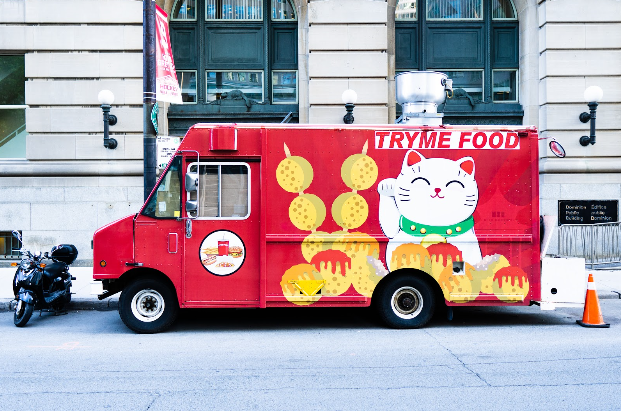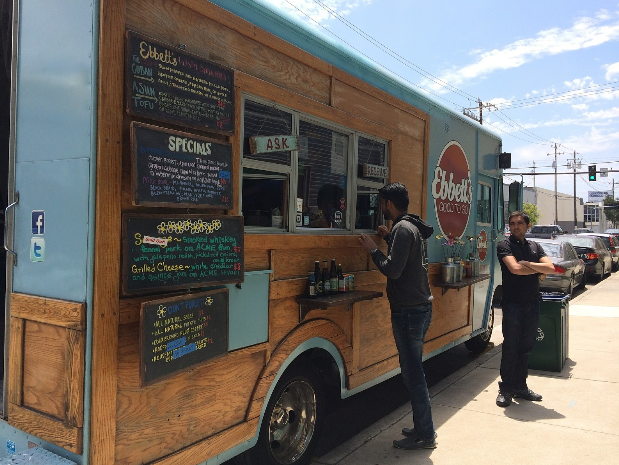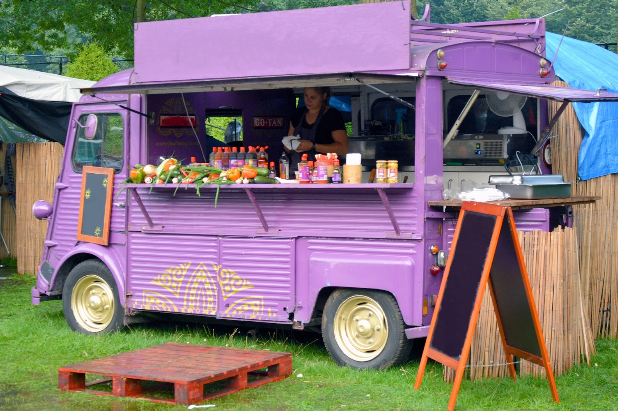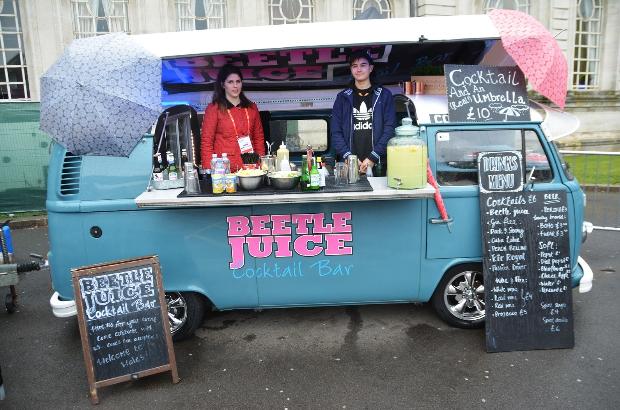In New York, an investment banker gets tired of finding no well-priced lobster rolls and decides to start his own lobster roll based food truck business.
In Philadelphia, a veteran teacher helps at a friend’s concession stand, finds himself allured by the prospect of selling food and starts his own cheese curd food truck business.
In Los Angeles, a young man working in a sandwich shop decides to embrace the taco truck trend and starts his Japanese burger based food truck business.
If there’s one thing the food truck industry can teach us, it’s how creativity and a passion for food can spring from anywhere and become a truly beloved business. One of these businesses now serves as a chain of Maine based restaurants, another has begun selling their food wholesale in supermarkets, and the other has become a cultural icon that’s virtually synonymous with the city it serves.
Diamond Trailers have explored these success stories, which truly show that the days of viewing food trucks as dingey, last-resort ‘roach coaches’ doomed to the roadside are quickly becoming a thing of the past.

The Rise of the Food Truck
Roughly traced back just a decade ago, many would call 2008 the year of the food truck. Emerging from the economic downturn of the year, food trucks quickly became an alluring prospect for chefs & entrepreneurs alike, serving as a considerably more cost-friendly alternative to opening up a restaurant. One of the pioneers of this brave & tasty new world was Roy Choi, the founder of Kogi BBQ.
Considered ‘crazy’ at the time but hailed as ‘genius’ soon after its conception, Kogi BBQ was Choi’s brainchild of fusing Korean tastes with Mexican cuisine that resulted in dishes dubbed “Los Angeles on a plate”. Choi’s culinary abilities were but one of the elements to this cultural phenomenon, which should surprise no-one as he was trained at the Culinary Institute of America, as the era had also begun embracing a new medium that, as Choi soon discovered, could make or break a business; social media.
Most, if not all, food truck owners will state just how important social media is for their business. Of course, the same could be said of any business nowadays, but this ‘grassroots’ approach to marketing is often the one and only tool these chefs & entrepreneurs have at their disposal. “Street food lends itself quite well to Twitter as our itinerant lifestyle demands updates and followers, so we just started tweeting and it came from there,” says Xochi & Ben when discussing the social media presence of Rainbo Food. However, when Choi was wielding the web and sending out tweets for Kogi BBQ it was like the Wild West; untamed & new lands that few had been bold enough to brave before.
Choi’s early adoption of Twitter was a smart move; using it as a means of updating customers of his food truck’s ever-changing location. By utilising the energy of young urbanites Choi managed to start selling his food much more successfully, especially compared to his efforts of trying to serve drunks pouring out of nightclubs.
Now amassing well over 100,000 followers who keep watch of his several food trucks’ locations, Choi’s business has become so successful that he’s able to make the transition from one side of the pavement to the other. His fleet of four Kogi BBQ trucks are paired with several Kogi BBQ restaurants, as well as a food stall permanently based in LAX airport; truly offering visitors to the city a taste of LA as soon as they arrive.

Food Truck Culture – Success with Food Trailers
Of course, this wild success story isn’t just the catalyst for chefs & entrepreneurs enjoying a new industry; it’s a culture that resonates with its customers too. No business can succeed without plenty of loyal fans, after all, and customers soon found that paying a fraction of restaurant prices for food that was as good, if not better, was too delicious an offer to pass up. This mass love for food trucks has been embraced on varying levels from city to city, but the likes of London and Los Angeles leading the front in food truck appreciation.
One of the most famous examples of this is the hugely celebrated Abbot Kinney First Fridays, a genuine congregation of food trucks that convene at Venice Beach’s Abbot Kinney Boulevard. This festival of food takes place every first Friday of the month and regularly sees thousands of visitors come to take part in the feeding frenzy. Quantity and quality meet during this festival, as food truck owners can make a lot of money; even if they’re serving food that costs a couple of bucks.
Of course, the convenience for customers is but one side of the coin; the other is just how exciting the industry is for the chefs.
Perhaps one of the most surprising elements of food truck culture is how healthy the competition is. Many food truck owners have stated that not only is competition with other food trucks sporting, but it’s also supportive; with many calling their budding industry a ‘small community’. Unlike many restaurant chains who adamantly stick to their own business, food truck culture seems to welcome different tastes and styles, with many saying that it helps to get them thinking even more creatively about their own dishes.
Anna & Tony of ‘Anna Mae’s Mac N Cheese’ put it best, saying: “We all know each other, help each other out and spend time together, so if someone came in with that ‘aggressive competitive’ vibe it would be a bit weird!” which, really, speaks volumes about how much of a community this industry has become. “The competition is good,” Rachel Jones of ‘Capish?’ adds, “it keeps you on your toes and encourages you to do better!”

From Bricks to Wheels and Back Again – Food Trucks v Restaurants
Kogi BBQ isn’t the only one enjoying the transition from road to restaurant, as plenty of other beloved franchises have sprung up from serving folk in a truck. Fukuburger Truck, a Las Vegas-based Japanese burger vendor, Cinnamon Snail, a predominantly Vegan eatery based in New York, and even Grilled Cheeserie, a grilled cheese sandwich based business situated in California, are but a handful of examples of food trucks becoming beloved franchises.
Another franchise that sprung from surprising origins is Luke’s Lobster. Starting as a tiny shack and now spanning across 11 cities with 20 ‘shacks’, Luke Holden’s lobster based empire was the result of a passion for food and a lot of pinpoint accuracy research. Originally from Maine and maintaining close ties with both his father and the fishermen they know, Holden was able to focus on serving food that wasn’t just close to his heart but that of the city of Maine itself. Lobster rolls may not be too common around the world but they’re virtually a staple of cultural identity for Maine, which is how Holden was able to serve his freshly sourced lobster meat (courtesy of dealing exclusively with the fishermen his family know) at a price that didn’t break the bank.
Some have been able to approach serving street food as more of a pragmatic move than one strictly run by passion, utilising both food trucks and restaurants as a means of seeing what works where. A prime example of this would be Thomasina Miers, owner of the ‘Mexican street kitchen’ style ‘Wahaca’. Miers has talked about the benefits of both restaurants and food trucks yet state that the latter is “a great way to test out new dishes” and says that those that are popular enough make it onto their restaurant menus.
It’s these innovations and savvy moves that chefs & entrepreneurs have made, that can only be made in the food truck industry, that has been the key to their wild success.

From the Mouths of the Chefs – Why Food Trailers?
For those who have ‘made it’ in the food truck industry, whether it’s still on the road or a little more rooted in brick & mortar, there’s no doubt that they’re enjoying the rising tide of food truck popularity. Each and every one of them has their own reasons for entering the industry, ways they’ve become popular and generally their experience serving the people on the streets.
Some stories are almost universally relatable, especially for the likes of millennials or Gen Z, such as Jones’ of ‘Capish?’. When asked why she wanted to enter the food industry she replied with “Like a lot of students, I left university with a degree and a lack of direction…I spent a lot of time sat at my desk (at work) daydreaming about food…I started to become a bit of an obsessive but still didn’t have the confidence to make the jump career-wise; it was street food that changed that in the end.”
Other success stories make it abundantly clear that they’re successful because of who they serve, stating in humble terms that despite being confident in their own abilities there’s plenty to be said about those who appreciate them first. Such customer appreciation is common for Rainbo Food’s Xochi & Ben, who stress that those looking to try their hand at the food truck industry themselves shouldn’t dismiss how important the first steps are. “Those early customers are so important, and your story & narrative will really connect you to the public,” they say. “Don’t be shy to tell it!”
Interestingly enough, it’s not just the food that has made the food truck industry profitable, as there are other innovative minds finding ways to influence the industry in alternative manners. Ross Resnick, for example, noticed how popular food trucks were becoming and how much they relied on social media for customers to see where they were serving. This is how ‘Roaming Hunger’ came to be; Resnick’s app that tracks hundreds of food trucks across America and shows their real-time locations.
This innovation mirrors the staples of such apps like Google Maps or TripAdvisor. Many would turn to these sources for information on restaurants, and now there’s an app for those looking to find what are essentially restaurants on wheels.
Given the booming nature of the food truck industry, having been estimated to be around an $800 million industry in America alone back in 2015, it seems unlikely that Resnick’s app will be the last adaptation we’ll see. Food trucks have even seen themselves enter the zeitgeist in film form, with Jon Favreau (perhaps best known for directing the likes of Iron Man and Spider-Man: Homecoming and filling the role of Happy in both) writing, directing and starring in a film dedicated to the industry called ‘Chef’.
It truly feels like the sky’s the limit for the food truck industry, and it’s certainly exciting to see what creative & tantalising ideas emerge from it next.






 Featured Training
Featured Training
OUR MEMBERSHIP
We're here to help make your catering business a success. Whether that be starting up or getting on top of your compliance and marketing. We're here to help you succeed.
Want our latest content?
Subscribe to our mailing list and get weekly insights, resources and articles for free
Get the emails